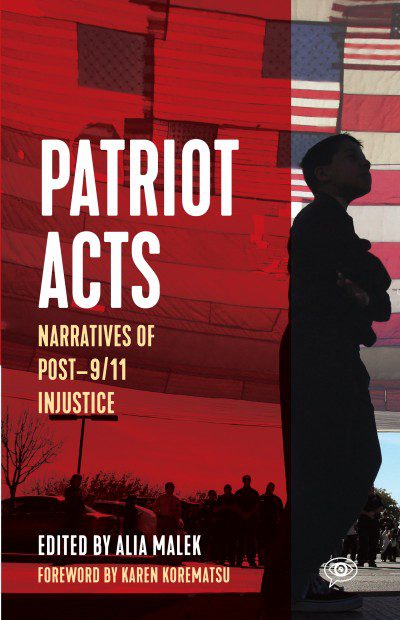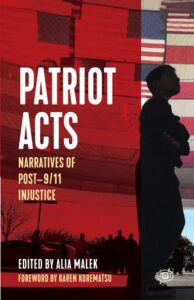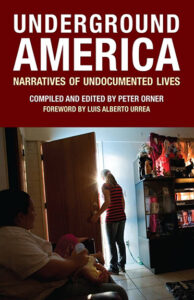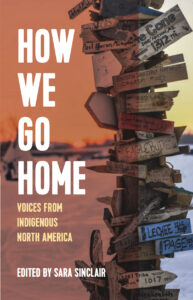The Voice of Witness book series amplifies the stories of people directly impacted by—and fighting against—injustice. We use an oral history methodology that combines ethics-driven practices, journalistic integrity, and an engaging, literary approach.
The books explore issues of inequity and human rights through the lens of personal narrative. Each project aims to disrupt harmful narratives by supporting historically marginalized or silenced communities to tell their own stories in their own words.
Book clubs are useful tools for engaging and interacting with these oral histories and the issues they highlight. Find our handout with guidance on planning and facilitating one here.
Use the questions below to start a book club for Patriot Acts: Narratives of Post-9/11 Injustice.

Discussion Questions:
- Weeks after the War on Terror was announced, thousands of Muslims and Arabs living in the United States were detained and brought in for questioning. The government justified these interviews and detainments in the name of security. At what point do security and individual liberty collide? What is more important to preserve, and at what cost?
- Adama Bah was detained by the FBI at age 16 for being on a suspected terrorist list. They kept her for six weeks before releasing her on house arrest. What do you imagine this experience contributed to Adama’s understanding of her place in this country?
- Many of the narrators tell stories of children who experienced bullying and harassment at their schools because they are Muslim or are mistaken to be. What underlying feelings do you think propel kids to bully others? How can parents and schools create safer places for all students?
- Amir Sulaiman’s politically themed poem was featured on HBO’s Def Poetry Jam before a national audience. Shortly thereafter, the FBI questioned him about his poetry’s message. Agents came to his mother-in-law’s house, the school where Amir worked, and interviewed his friends. Think about the risks that artists take when they create political work. Should art be protected as free speech, or are there certain themes and messages that warrant investigation? Why or why not?
- Rana Sodhi’s brother Balbir, a Sikh man, was murdered in front of the gas station he owned on September 15, 2001. Balbir’s murder was the first reported hate crime after 9/11. When Balbir’s killer was identified, he shouted that he was a “patriot” who “stood for America.” What emotions do you think were at the root of this terrible crime? What influences our definitions of patriotism?
- Hani Khan, a teenager living in California, was fired from her job at Hollister for wearing a hijab. The company claimed that employees were not allowed to wear any kind of headgear. Why do you think Hollister fired Hani? Should companies be allowed to set rules that
conflict with employees’ religious freedom? Explain your thoughts. - A recurring theme throughout the stories in Patriot Acts is detainment of people who are under suspicion of terrorism. What do you believe should be required in order for the government to detain a suspect? What are some of the dangers and consequences of
detainment without sufficient probable cause? - Yasir Afifi, a student in California, found an illegal tracking device under the back of his car. Two days later the FBI showed up at his house and demanded the tracking device back. How do you think this incident impacted Yasir’s feelings about his own safety and well-being in his country?
- Faheem and his friends were stopped and questioned after police had seen them praying in a parking lot. Police officers are supposed to “protect and serve.” Which communities or groups do you think are protected and served by police? Which groups aren’t, and why?
- While waiting for his flight at the terminal, Raed Jarrar, a scholar and activist, was approached by representatives from Jet Blue and TSA and asked to remove his t-shirt, which read WE WILL NOT BE SILENT in both English and Arabic. The Jet Blue and TSA
employees claimed that they’d received complaints that other passengers were uncomfortable. In situations like this, who is afforded comfort in the United States, and who isn’t? Why?



